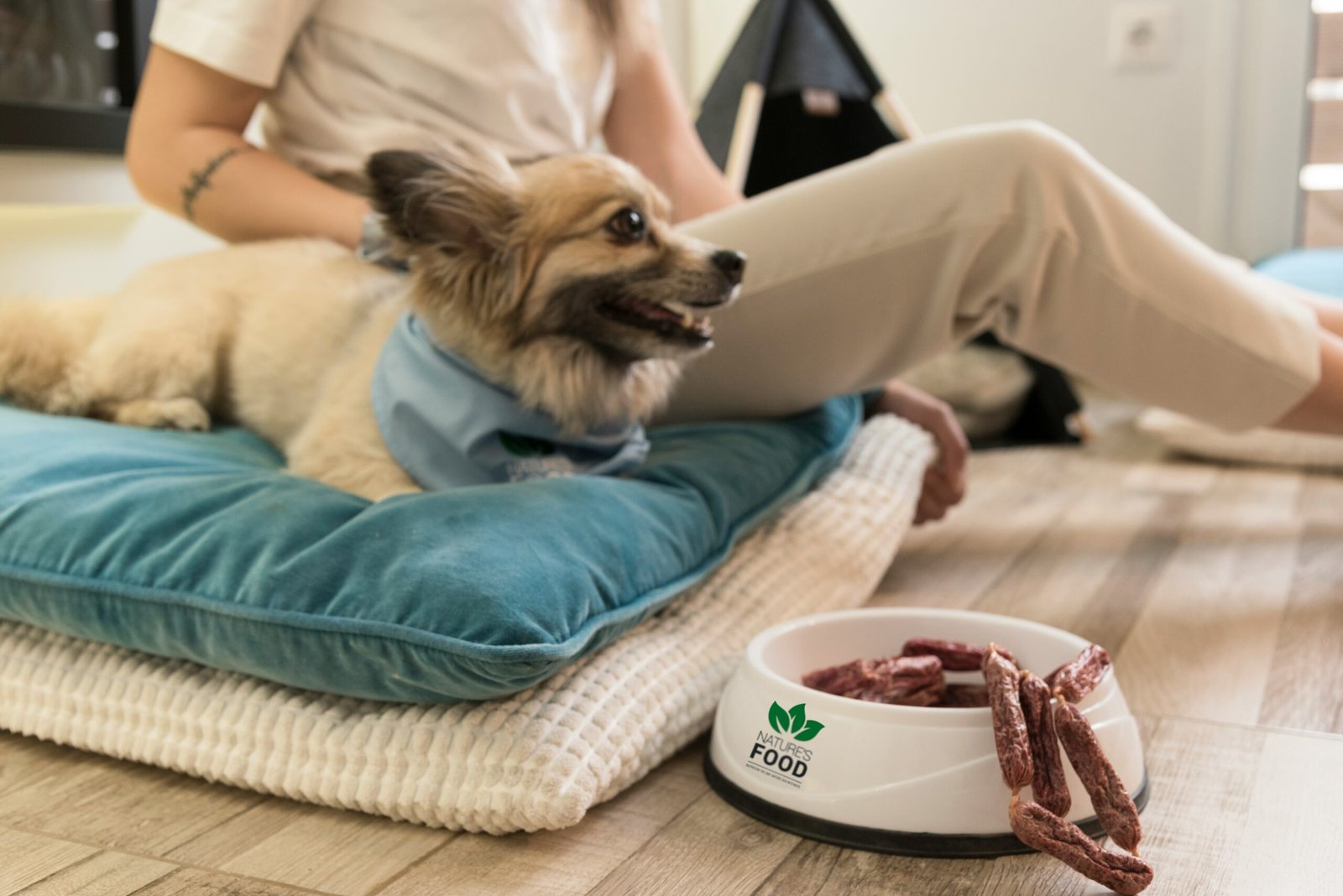When it comes to our furry companions, their health and happiness hinge significantly on what’s in their bowls. Just like humans, dogs require a balanced diet rich in nutrients to thrive. Choosing the right dog food can be overwhelming with countless brands and formulations lining store shelves. But understanding your pup’s nutritional needs is crucial for ensuring they lead vibrant lives full of tail wags and playful barks.
Imagine watching your dog bounce through life with energy, their coat shiny and eyes bright; that picture begins with proper nutrition. This blog will guide you through why quality dog food matters, common pitfalls of poor diets, essential ingredients to look for, and even some mouth-watering recipes you can whip up at home! Your four-legged friend deserves nothing but the best when it comes to mealtime choices—let’s dig into how you can provide them with nutritious and delicious options!
Why Proper Nutrition is Important for Dogs
Proper nutrition is the cornerstone of a dog’s overall health. Just like humans, dogs need a balanced diet to support their growth, energy levels, and immune systems.
When dogs receive adequate nutrients, they experience improved digestion and maintain a healthy weight. This can help reduce the risk of obesity-related issues such as joint problems and diabetes.
Quality food also plays a critical role in skin health and coat condition. A well-nourished dog often boasts a shiny coat that reflects their vitality.
Moreover, proper nutrition directly influences behavior and mood. Dogs that eat well are more likely to exhibit calmness and stability compared to those on poor diets.
In essence, good nutrition not only fuels your dog’s body but also enhances their quality of life—ensuring they’re happy companions for years to come.
Common Health Issues Caused by Poor Diet
A poor diet can lead to several health issues in dogs. One common concern is obesity, which affects their mobility and overall well-being. Excess weight places stress on joints and organs, making it harder for your pup to stay active.
Skin allergies are another frequent problem linked to inadequate nutrition. Dogs may develop itchy skin or rashes due to low-quality ingredients or food sensitivities. Poor dietary choices can also contribute to gastrointestinal disturbances like diarrhea or vomiting.
dogs’ food Dental problems often arise from a lack of proper nutrients. Insufficient dental care combined with the wrong foods can lead to plaque buildup and gum disease.
Long-term nutritional neglect can even impact your dog’s lifespan. Diseases such as diabetes, heart conditions, and kidney issues have been associated with unhealthy eating habits over time. Prioritizing quality dog food is essential for your furry companion’s health and happiness.
What to Look for in a Quality Dog Food
When searching for quality dog food, first check the ingredient list. Look for whole foods like meat, vegetables, and grains at the top. These ingredients should be recognizable and nutritious.
Next, consider the protein source. Dogs thrive on animal proteins. Ensure that it’s named specifically—like chicken or beef—rather than vague terms like “meat meal.”
Watch out for fillers such as corn and soy. These often provide little nutritional value and can lead to allergies in some dogs.
Moreover, pay attention to added vitamins and minerals. A balanced diet includes essential nutrients tailored to your dog’s age and activity level.
Check if the food meets AAFCO standards which ensure complete nutrition for pets. Quality dog food supports a long, healthy life filled with energy and joy!
Top Ingredients to Include in Your Dog’s Diet
When selecting the best dog food, focus on high-quality ingredients that promote health. Protein is crucial. Look for real meat sources like chicken, beef, or fish as the first ingredient.
Healthy fats are equally important. Omega-3 and omega-6 fatty acids support skin and coat health. Fish oil and flaxseed can be great additions to your dog’s diet.
Incorporating fruits and vegetables boosts vitamins and minerals. Blueberries are packed with antioxidants while carrots provide fiber.
Whole grains like brown rice or oatmeal offer energy without causing digestive issues. They keep your pup feeling full longer.
dogs’ food Don’t forget about probiotics! Ingredients such as yogurt can help maintain gut health by ensuring a balanced microbiome.
Each of these elements contributes to a well-rounded diet that supports overall wellness in dogs, keeping them happy and energetic throughout their lives.
Homemade vs. Store-Bought Dog Food
Choosing between homemade and store-bought dog food can be a tough decision. Each option has its perks, catering to different lifestyles and preferences.
Homemade dog food offers control over ingredients. You can ensure your pup gets fresh, wholesome components without fillers or preservatives. This customization allows you to cater to specific dietary needs.
On the other hand, store-bought options often provide convenience. Many brands focus on balanced nutrition formulated by veterinarians, saving time for busy pet owners. Quality commercial foods are rigorously tested for safety and nutritional value.
When considering cost, homemade meals may require more initial planning but could save money in the long run if done right. Store-bought varieties sometimes come with a higher price tag but offer ease of access.
Both paths have their merits. A mix of both homemade treats and quality commercial diets might just create that perfect balance for your furry companion’s diet.
Healthy and Tasty Recipes for Homemade Dog Food
dogs’ food Creating homemade dog food can be both fun and rewarding. Your furry friend deserves a meal that’s as nutritious as it is delicious.
One simple recipe includes lean ground turkey, quinoa, and chopped carrots. Cook the turkey until brown, add cooked quinoa, and mix in steamed carrots for added vitamins. This balanced meal provides protein and essential nutrients.
Another great option features sweet potatoes, green beans, and chicken breast. Boil the chicken until tender, mash some sweet potatoes, then combine everything with cut green beans for fiber-rich goodness.
Don’t forget to include healthy fats too! A drizzle of olive oil can enhance flavor while supporting your dog’s coat health.
These recipes are customizable based on your dog’s preferences or dietary needs. Plus, you know exactly what goes into their meals—no hidden additives here!
Conclusion: Providing the Best Nutrition for Your Furry Friend
Providing the best nutrition for your furry friend is essential for their overall well-being. Quality dog food plays a crucial role in maintaining a healthy lifestyle and preventing various health issues. By understanding what to look for in dog food and being mindful of ingredients, you can make informed decisions that benefit your pet.
Homemade options offer flexibility and control over what goes into your dog’s meals, while store-bought varieties can provide convenience without sacrificing quality. Whether you choose to whip up delicious recipes at home or select reputable commercial brands, prioritizing nutritious ingredients is key.
The right diet will not only support your dog’s physical health but also enhance their happiness and longevity. When it comes to dogs’ food choices, putting thought into their nutrition leads to a healthier and more vibrant life with our beloved companions.





